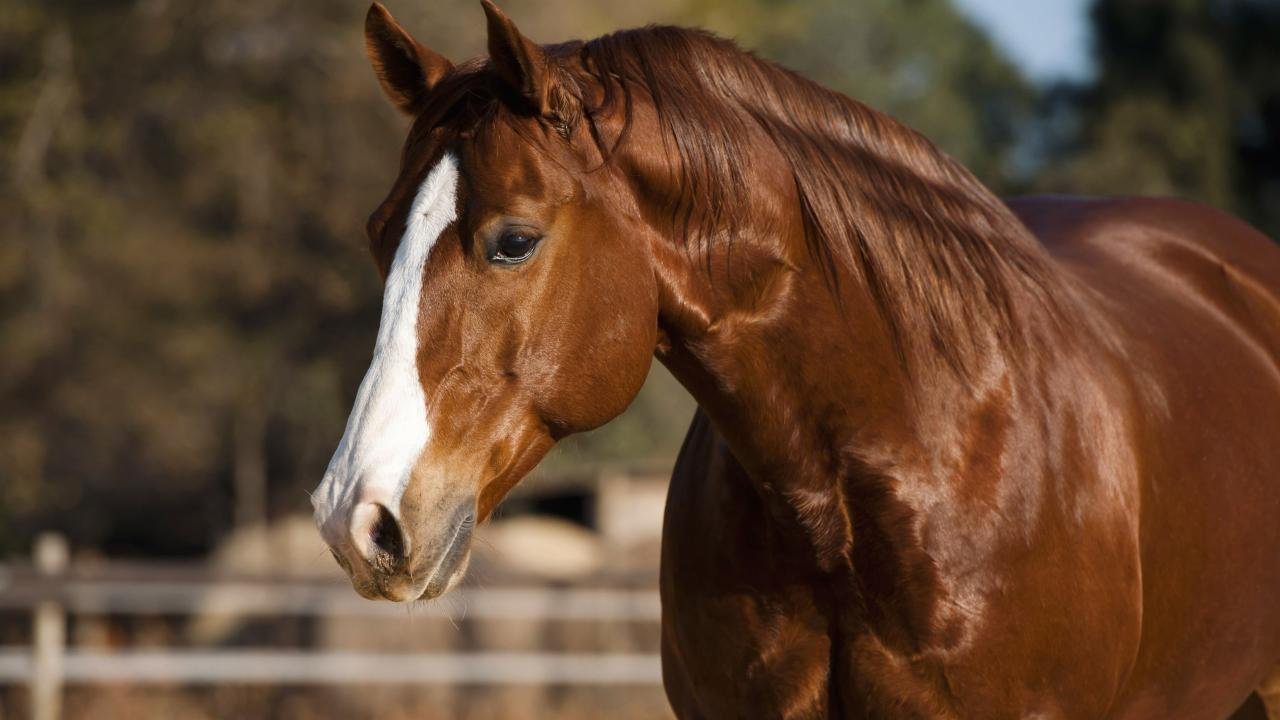
AQHA has added MYHM to the American Quarter Horse Genetic Health Panel offered through the Association
The American Quarter Horse Association (AQHA) has just announced that the myosin-heavy chain myopathy (MYHM) test has been added to the American Quarter Horse Genetic Health Panel offered through the Association. The decision to add MYHM was made earlier this year at the 2022 AQHA Convention in Las Vegas, NV, following a rule-change proposal submitted by an AQHA member. Starting December 1st, 2022, MYHM will be automatically included in the health panel test ordered through AQHA. Any breeding stallion tested after January 1, 2023, will need to have a complete health panel, including MYHM, before their offspring can be registered.
A few years ago, Drs. Carrie Finno and Stephanie Valberg and their team identified a version of the Myosin-Heavy Chain 1 (MYH1) gene, denoted as the My allele, that increases susceptibility to MYHM, a heritable muscle disorder that affects Quarter Horses and related breeds resulting in two distinct clinical disease presentations: immune-mediated myositis (IMM) and non-exertional rhabdomyolysis. Subsequent work by this team determined that My was most prevalent in the reining, working cow, and halter performance subgroups. Additional research conducted in collaboration with the VGL showed that homozygote horses (My/My) are more severely affected than horses with one copy of My (N/My). Taken together, the research data illustrates the importance of testing for MYHM in the American Quarter horse for breeding and clinical management decisions.
VGL director, Dr. Rebecca Bellone, who has been involved in the recent collaborative research studies on MYHM noted
The collaborative study by the VGL and the UC Davis Neuromuscular Disease Laboratory showed that the My allele was the most common disease variant detected in a population of horses affected by muscular disorders. Adding the MYHM test to the American Quarter Horse health panel that is required for stallions, before foals are registered, is another example of how the AQHA emphasizes healthy and responsible breeding. Additionally, adding this test to the panel offered through the registry can help AQHA members like Karissa Waber work with clinicians to understand, mitigate, and/or manage their horse’s potential health risks from an early age.”
Immune-mediated myositis, or IMM, is characterized by rapid muscle atrophy, loss of appetite, weakness, and stiffness, whereas non-exertional rhabdomyolysis, also referred to as “tying-up” that is not associated with exercise, has similar clinical signs to IMM except that affected horses may or may not display muscle atrophy. Horses with one or two copies of the My allele are susceptible to developing MYHM, although those with two copies are reported to have a more severe form of the disease.
While stallions that have been tested previously for the 5-panel test are not required to add MYHM, owners wanting to add MYHM to existing health panel results should contact AQHA for additional information. Adding the MYHM test to existing results will be offered at a discounted rate of $20 for a limited time.
Read more about this change on the AQHA website.
Visit our website for more information about MYHM testing.
References:
Finno, C. J., Gianino, G., Perumbakkam, S., Williams, Z. J., Bordbari, M. H., Gardner, K. L., Burns, E., Peng, S., Durward-Akhurst, S. A., & Valberg, S. J. (2018). A missense mutation in MYH1 is associated with susceptibility to Immune-mediated myositis in Quarter Horses. Skeletal Muscle, 8(1). doi: 10.1186/s13395-018-0155-0
Valberg, S.J., Henry, M.L., Perumbakkam, S., Gardner, K.L., & Finno, C.J. (2018). An E321G MYH1 mutation is strongly associated with nonexertional rhabdomyolysis in Quarter Horses. Journal of Veterinary Internal Medicine, 32(5), 1718-1725. doi: 10.1111/jvim.15299
Gianino, G.M., Valberg, S.J., Perumbakkam, S., Henry, M.L., Gardner, K., Penedo, C., & Finno, C.J. (2019). Prevalence of the E321G MYH1 variant for immune-mediated myositis and nonexertional rhabdomyolysis in performance subgroups of American Quarter Horses. Journal of Veterinary Internal Medicine, 33(2), 897-901. doi: 10.1111/jvim.15393
Valberg, SJ, Schultz, AE, Finno, CJ, Bellone, RR, Hughes, SS. (2022) Prevalence of clinical signs and factors impacting expression of myosin heavy chain myopathy in Quarter Horse-related breeds with the MYH1E321G mutation. J Vet Intern Med, 1- 8. doi:10.1111/jvim.16417
Aleman, M., Scalco, R., Malvick, J., Grahn, R. A., True, A., & Bellone, R. R. (2022). Prevalence of genetic mutations in horses with muscle disease from a neuromuscular disease laboratory. Journal of Equine Veterinary Science, 104129. doi: 10.1016/j.jevs.2022.104129
